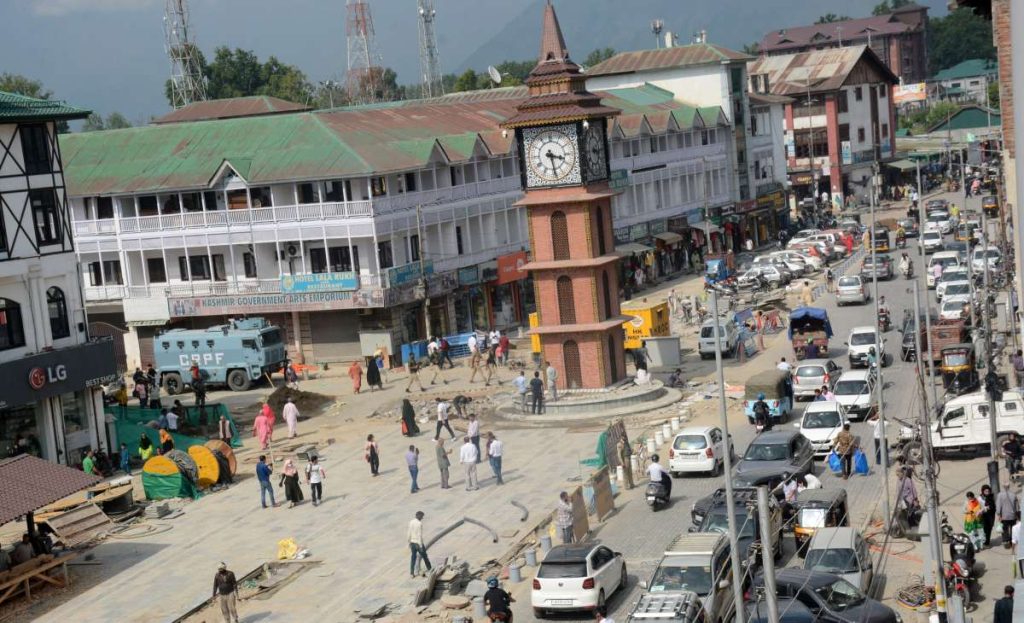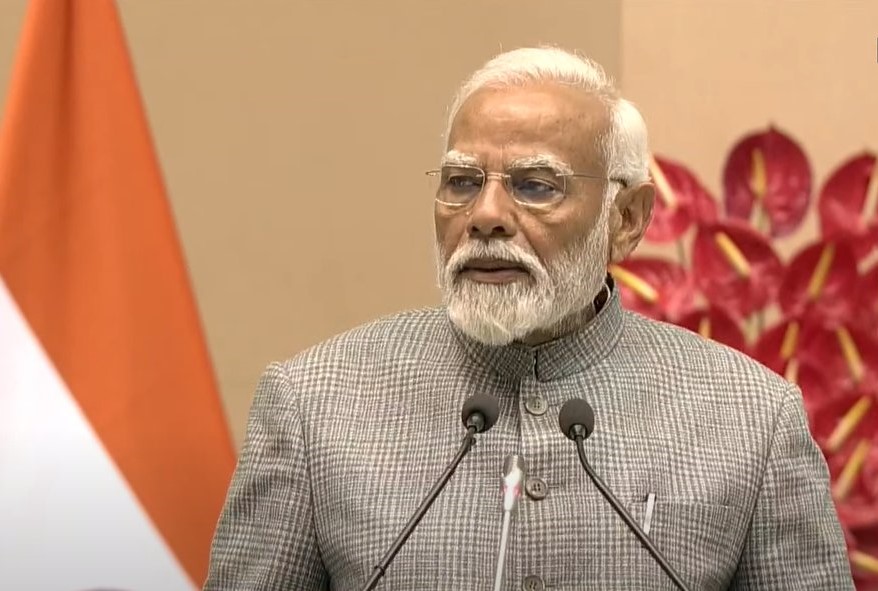Prime Minister Modi’s Kashmir visit appears to be a testing ground going forward. It seems that the government is not yet convinced that it can afford to extend political incentives like the restoration of J&K’s statehood, which is the biggest confidence-building measure in the present circumstances…. Write Nasir Khuehami & Ummar Jamal
Prime Minister Narendra Modi’s upcoming visit to Srinagar on March 7th has stirred anticipation, casting a spotlight on the complex dynamics of the region against the backdrop of significant political changes, notably the abrogation of Article 370. While some analysts interpret this visit as a strategic move ahead of impending parliamentary elections, the underlying need for reconciliation and healing in a region cannot be overlooked.
The erstwhile state of Jammu and Kashmir has been without an elected administration for around the past six years. June 2024 will mark the completion of 6 years since the elected government fell. The erstwhile state has been directly governed by the Union ever since. Even though the Centre government has made repeated promises to hold free and fair assembly elections, as of right now, nothing of the kind has taken place.
The Centre’s Invitation to representatives of political parties from Jammu and Kashmir for a meeting in New Delhi in, 2021, was seen as a significant step towards resolving the political impasse following the abrogation of Article 370 and the bifurcation of the former state into two Union Territories. Leaders across the party lines were invited after facing nearly two years of stonewalling. It was seen that New Delhi leadership recognized the unsustainable nature of the current approach towards Kashmir. Some averred that the way Kashmir is being handled cannot last for long, while others averred the move was a result of growing international pressure and others opined Delhi needed the support of local leaders for the smooth implementation of the ongoing delimitation process. Whatever be the reasons for the meeting one thing is clear the meeting changed nothing for the people of Kashmir till now.

Agree or not; the people of J&K are silent but deeply disappointed. The decision to revoke Article 370, ostensibly aimed at integrating Jammu and Kashmir with the rest of the country, has left many Kashmiris feeling marginalized and disillusioned. Modi’s upcoming visit presents a unique opportunity to address these sentiments, offering a glimmer of hope for a region yearning for stability and inclusion.
Since the abrogation of Article 370, mainstream politics in the region has been rendered ineffective as people have lost faith in the system. The vacuum created by the abrogation of Article 370 remained unfilled because mainstream politicians in Kashmir felt sidelined and were never given a chance to represent their voters. Even after the government attempted to groom a new breed of activists, they were not accepted by the people due to their little influence on the ground. The central government tried to create divisions in the regional political parties, which further created disenchantment among politicians advocating the idea of India, even during the turbulent 1990s in Kashmir.
PM Modi’s Kashmir visit appears to be a testing ground going forward. It seems that the government is not yet convinced that it can afford to extend political incentives like the restoration of J&K’s statehood, which is the biggest confidence-building measure in the present circumstances. There is a reason for it. Post the abrogation of Article 370, there was a conviction in New Delhi that a new political class could be nurtured at the expense of the traditional one and hence the constitution of Development Councils, which, however, as evident, has not resulted in desired dividends. Had that been so, the government would not have waited for the Supreme Court’s direction and instead raced to conduct the local legislative assembly polls at least a year back on its own.
Be that as it may, central to the journey towards reconciliation is the restoration of statehood to Jammu and Kashmir. Beyond its political ramifications, this gesture symbolizes a commitment to healing the emotional wounds inflicted by the abrogation of Article 370. By reinstating statehood, the government can convey a message of reconciliation. However, mere symbolic gestures will not suffice. The urgency lies in conducting Assembly polls before September 30th, as mandated by the Apex court. Transparent and inclusive elections are essential to empowering Kashmiris to shape their political destiny, fostering a sense of ownership and participation in the democratic process.
Yet, addressing the grievances of Kashmiris requires more than just political measures. Modi’s visit must be underpinned by a comprehensive strategy that addresses the deep-seated trust deficit in the region. This entails genuine efforts to understand and redress the aspirations of the local population, transcending the confines of political rhetoric. It is imperative to recognize that political manoeuvres alone cannot resolve the multifaceted challenges facing Kashmir. A holistic approach is needed, one that prioritizes rebuilding trust, restoring normalcy, and empowering the local population. Modi’s visit should catalyze such an approach, fostering a narrative of unity and understanding.
In this endeavour, Modi can draw inspiration from the legacy of former Prime Minister Atal Bihari Vajpayee, whose approach towards Kashmir epitomized the power of dialogue and empathy. Vajpayee’s mantra of “insaniyat, jamhooriyat, and Kashmiriyat” underscored a philosophy rooted in inclusivity, democracy, and respect for Kashmir’s cultural identity.
Emulating Vajpayee’s approach, Modi has the opportunity to pave the way for lasting peace and stability in the region. By prioritizing engagement over confrontation, Modi can bridge the trust deficit and address the grievances that have plagued Kashmir for decades. As Modi is set to set foot on the soil of Kashmir, the onus is not solely on political posturing but on fostering a narrative of unity, understanding, and comprehensive engagement. Only through such an approach can we envision a future where the people of Jammu and Kashmir find solace, hope, and a genuine path towards enduring peace.
(Nasir Khuehami is the National Convenor of J&K Students Association. He is Pursuing Masters in Conflict Analysis and Peacebuilding from Jamia Millia Islamia, New Delhi. Ummar Jamal is the National General Secretary of J&K Students Association. He is Pursuing BA. LLB from the University of Kashmir. )
